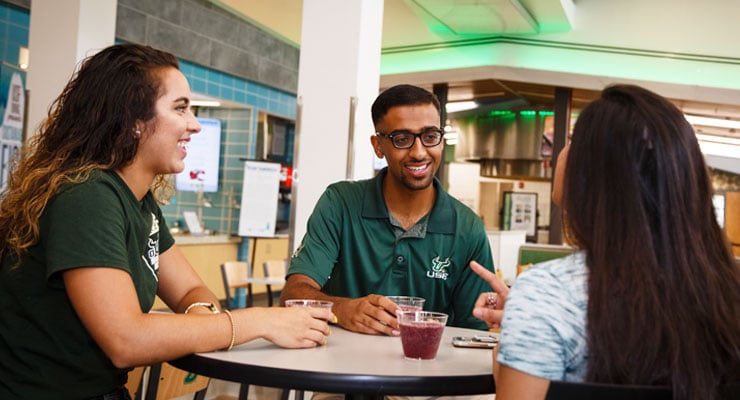
It’s almost always a good time to build personal and professional networks, explore career options, gain work experience, and enhance a résumé. So, it’s not a matter of whether you should do a college internship, but simply when. And deciding when to start college internships depends on your past, your future, and your timeline.
Before Making Internship Decisions, Answer These Questions
Making decisions on internships depends on your history, goals, and timeline, or lack thereof. Ask yourself:
How’s Your Résumé?
Do you have a work history, regardless of the job(s), that indicates you are a responsible employee? Can you provide references that reflect well on you? Even if the job you held through high school was at a fast-food restaurant, tenure and performance matter.
You don’t have to wait until college to start logging career-oriented internship experience. Consider these 15 STEM internship opportunities, from NASA to the San Diego Zoo, open to high-schoolers.
Remember, even internships that rule out career choices are fruitful. They still yield valuable workplace experience and are part of finding the right path. According to Forbes magazine, the time and effort are well spent "if your plan and aspiration is to embark on a professional career in a corporate-type environment.”
Found Your Future Yet?
Does this sound like you?
You’ve shown a willingness to punctually punch the clock at McDonald’s throughout high school. You have a passion for aeronautics, and a post-high school summer internship with NASA is going to position you beautifully to affirm or defuse your passion for aeronautics and enable you to hit college knowing what you want to do and how.
Here’s your bottom line: You have known your career path since high school, your transcript and pre-college internships show you have prepped accordingly, and you have a résumé that indicates you understand the value of work.
You could be ready to begin serious career-related internships as soon as your freshman or sophomore year in college.
What’s Your Timeline?
For most, the clock on serious internships for college students starts ticking the summer before or during their junior year.
In this scenario, your career path typically starts to come into focus late in your sophomore year when you finally choose a major that fits. You knock off some serious credit hours in your junior year, and your studies (and, hopefully, a résumé you started building in high school that shows a good work ethic and history) have prepared you for a great paid internship in your field of choice.
There’s no single right answer on the timeline, and no guarantee you’ll get a paid internship, but there is a knowledge threshold an intern must cross to make the experience rewarding for the employer and the intern, which puts the onus on finding your major and advancing your studies.
WayUp declares there are no right answers on when to do internships, only pros and cons when it comes to the choices:
Which year of college? Freshman- and sophomore-year internships can be used to explore career options. Interning after your sophomore year usually is more focused and productive because you will have a greater knowledge base and more defined goals.
Summer or school year? Summer internships are more plentiful but in greater demand and harder to get. They also offer more choices, including part- or full-time internships, with geographic distance becoming less of a problem. School year internships require smart scheduling and time management. As WayUp says, you also can use “academic year internships to clarify your career direction and build your network to secure a summer internship.”
Post-graduation internship? These internships give you a chance to show a company who you are and what you can do. It’s an inside track, a way to network and find a job without making a long-term commitment – with modest if any pay and, typically, no health insurance or other benefits.
Need Help Finding an Internship?
Help finding an internship can come from school counselors, teachers, and personal and business connections. Internet searches also can be productive:
- “8 Websites to Help You Find an Internship”
- “The 10 Best Websites for Internships”
- “The 10 Best Websites for Finding an Internship”
- “8 Ways to Find an Internship”
- “A Guide to Internships: Finding Hands-On Experience Locally and Abroad”
- “How to Get an Internship in College”
Closing the Deal on the Internship Application Process
Once you find targets, the focus shifts from the hunt to the application process. It’s important that you:
- Send as many applications as time and quality allow.
- Don’t wait until the last minute to apply.
- Tailor each cover letter and résumé to the target company.
- Read the application instructions carefully, and follow them to the letter.
- Wait about a week, then check in to see whether the application arrived.
- Be prepared to ace the interview if you get one.
Colleges Are Good at Connecting Students and Internships
The University of South Florida is a great example of a school that knows the importance of internships and supports students in the hunt for hands-on educational experiences.
You know there’s an app for everything, including the digital internship hunt. USF ticks the digital assistance up several notches with Handshake, an online career management system that’s also useful if you’re looking for an internship, co-op opportunity, or simply a job.
Handshake also allows you to:
- Upload your résumé and create an online career profile that employers can access
- Track local and campus career events
- Get contact information for local and national employers
- Seek and apply for jobs
All three USF campuses offer internship-related services that aren’t limited to Handshake:
If you have questions about what USF has to offer, reach out to the Office of Admissions online, or call us at 813-974-3350.




